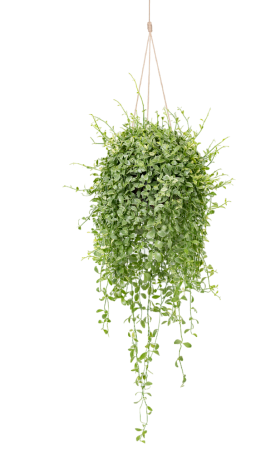Nebulizers: Should healthy people use them?

Nebulizers are small machines that turn liquid medicine into a mist that can be easily inhaled. To use one, breathe in the medicine through a connected mouthpiece or facemask. This allows the medicine to enter the lungs directly. (How to use a nebulizer) Nebulizers are frequently prescribed for asthma, COPD and other respiratory diseases, and are helpful to deliver breathing medicines to babies or children who are unable to use another type of inhaler.
Nebulizers and ultrasonic humidifiers use the same technology: a metal mesh screen vibrating at high frequency breaks the liquid into an ultrafine mist. However, a nebulizer is a medical device used primarily for delivering medication directly to the lungs, while a humidifier is a home appliance designed to increase moisture in the air. (Nebulizer vs. Humidifier: What’s the Difference?) So, only “ill” people use nebulizers, right? Well…not exactly.
As we know, the advent of modern battery technology allows for a stunning number of appliances to become light and portable, with powerful and long run times. Nebulizers used to require an electrical outlet and a shoebox of space to store the machine, attachments and cord, but new battery nebulizers are available. Anyone can purchase and use a nebulizer from Amazon or specialty sites. But should they?
A few studies have been done on the use of nebulizers by healthy people. Since singers, actors and teachers rely on their voices for their profession, it makes sense to take care that extensive use and adverse conditions don’t damage their vocal cords. Hydration is essential and can be accomplished in two ways: systemic hydration (drinking more water) and surface hydration (use of a humidifier, steamer or nebulizer). Surface hydration of the outer layers of the vocal cords is a faster way of hydrating them, and it reduces the Phonation Threshold Pressure (PTP), which is the effort needed to vocalize, making speaking and singing easier and the vocal cords less susceptible to injury (for an explanation of this science, check out this video!). Instead of using just plain water, often devices are sold with packets of pre-mixed salts and moisturizing aids, to be mixed with distilled water for use in the nebulizer. Here are a few of the studies that support use of nebulizers for vocal cord health:
- Research published by the Journal of Voice in 2023 demonstrated that regular use of saline nebulizers improved vocal hydration and reduced symptoms of vocal fatigue and dryness in professional voice users, resulting in a 50% decrease in vocal strain.
- A 2010 clinical study used a laryngeal surface dehydration challenge with classically trained sopranos. The singers reported increased vocal effort that persisted for at least 2 hr. Compared with plain sterile water, nebulized isotonic saline showed promise as an effective way to remediate the adverse, self-perceived effects of laryngeal dryness.
- A 2018 study in the Journal of Voice showed that vocal amplification and use of a 0.9% saline nebulization treatment may help mitigate dysphonia (hoarseness, or an alteration in voice quality) in different pathways as potential interventions for protecting teachers' voices in the work setting.
If a nebulizer helps prevent vocal strain and injury, what could possibly be the downside to using one? Since nebulizers and ultrasonic humidifiers operate in the same way, they are susceptible to the same problems: growth of bacteria in the machine and creation of fine particulates if tap water is used (these machines will atomize any minerals in the water, mimicking a high level of air pollution!) However, if one follows the cleaning instructions regularly and uses distilled water, they are safe. Check out our previous article on cleaning humidifiers here, but always refer to the specific device cleaning instructions.
According to the literature, we can think of a lot of people who might benefit from using nebulized saline:
- Professional singers and actors, of course
- Non-professional but avid singers
- Speakers
- Coaches (yelling over crowds is not easy!)
- Those who travel frequently on planes, due to the dry air on board
- Those use their voices to communicate for much of the day, including:
- TV, radio and podcast hosts
- teachers
- customer service professionals
- counselors
- Salespeople
In the medical world, beyond administering respiratory drugs, nebulization of hypertonic saline (a concentration of sodium chloride above what’s in the blood). may even be used prophylactically against SARS-CoV-2. According to a 2021 news release, the use of a hypertonic solution of sodium chloride at 1.1% reduced viral replication by 88% in tests involving infected lung cells conducted by researchers at the University of São Paulo. The mechanism is as follows:
- NaCl molecules enter a cell and the membrane surrounding the cytoplasm is polarized owing to an increase in sodium ions (Na+).
- As a result of this energy imbalance, a large amount of the cell’s potassium (K+) is ejected to restore a balance of charges in the membrane (this mechanism is known as the sodium-potassium pump).
- Saturation due to the sodium-potassium pump makes the cell expend ATP (adenosine triphosphate), one of the main sources of energy for cellular processes. Consumption of ATP for cellular depolarization prevents the virus from using it to replicate.
- “Cells have to get rid of sodium via the sodium-potassium pump, and this uses up their energy store, so there’s no ATP left for viral replication,” said Henning Ulrich, a member of the team.
If you use your voice as an important part of your job or lifestyle, nebulized saline might be for you. Just remember to clean the nebulizer regularly and thoroughly to avoid making yourself sick from bacteria or mold!
Photo by Sincerely Media on Unsplash






